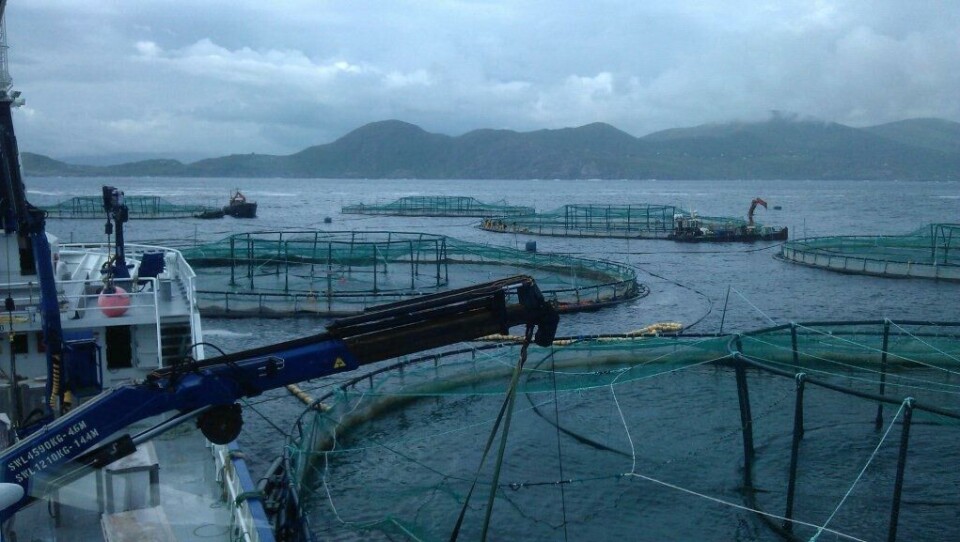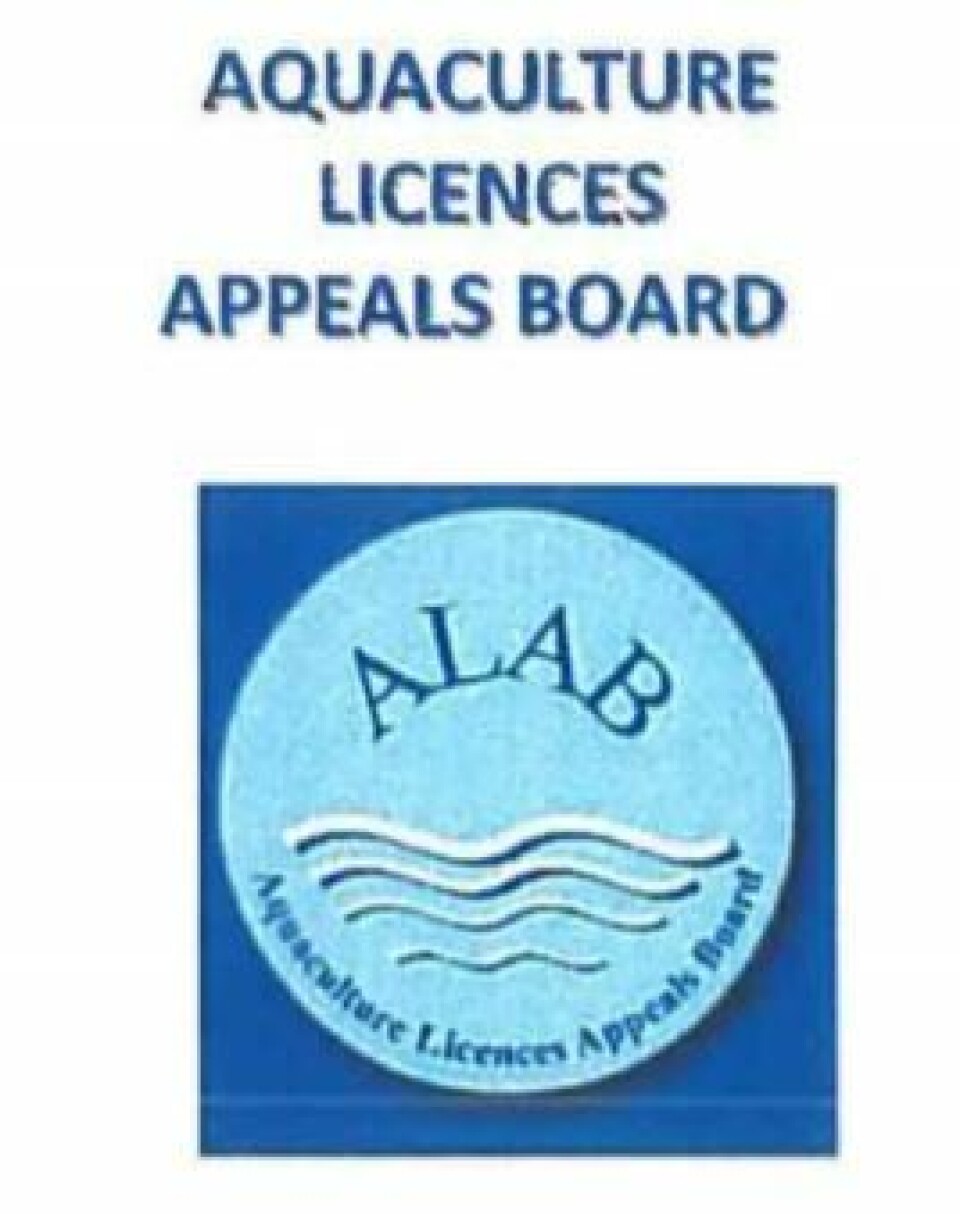
Mowi hits back over Irish farm licence revocation
Mowi Ireland has lodged a robust appeal against a decision by Ireland’s agriculture and marine minister, Michael Creed, to revoke its licence for a salmon farm in County Kerry.
The company also intends to institute judicial review proceedings against the decision, on the basis that Creed was not entitled or empowered to take such action.
Mowi Ireland claims that if the current stock at the farm has to be culled it would represent a loss of sales in 2020 of €13.7 million – about 20% of its expected turnover next year – and potentially undermines its viability.

19-year wait for licences
Mowi’s defence of its farm permit turns the spotlight on Ireland’s glacially slow licensing system, which the salmon producer argues has not kept pace with changes in aquaculture. “Some of Mowi Ireland applications to renew licences have been with the Department since 2000,” it says in the appeal. “Little or no information has been provided regarding the progress of these applications over the years.”
Mowi lost permission to keep operating its farm at Deenish Island in Ballinskelligs Bay last month after being accused of harvesting more than twice the amount of salmon it was allowed to in 2016. Mowi has been waiting for a licence renewal for Deenish since 2007.
Creed said that the company had harvested 1,100 tonnes instead of 500 tonnes, and that “the breach of the licence condition took place in circumstances where the company was fully aware of the limits set by the specific condition of the licence”.
‘Increased effluent discharge’
He further argued that an increase of 121% in the stock harvested from the site must have increased the effluent discharge from the site, and that enforcement of the licence conditions served to uphold the integrity of the state’s regulatory regime and was in the public interest.
In its submission to Ireland’s Aquaculture Licences Appeals Board (ALAB), Mowi argues that there was no breach of condition 2(e) that “the Licensee shall not harvest more than 500 tonnes (dead weight) of salmon in any one calendar year” because when the licence was granted in 1995 “harvesting” referred to the killing of live salmon on site and no such operations took place at the Deenish site in 2016. Instead, live fish were collected by a wellboat and taken to Castletownbere where they were pumped into a mobile harvest station for slaughter.
The company explains that when the site licence was originally issued slaughter took place at the pens and this resulted in the release of blood-water at the site during the harvesting operations. Accordingly, conditions such as 2(e) were required to ensure there was no adverse effect on the environment but are no longer relevant.
Mowi says condition 2(e) is no longer fit for purpose and is not consistent with another condition, 2(d), which says the number of smolts to be stocked at the site should never exceed 400,000, a number which give rise to more than 2,000 tonnes of adult fish.
Based on this logic, it suggests deleting conditions 2(d) and 2(e) of the licence and replacing them with a stocking limit of 2,200 tonnes standing stock biomass (also known as the maximum allowable biomass, or MAB).
‘Misunderstanding of the processes’
Referring to Creed’s contention that an increase of 121% in the stock harvested from the site must have increased the effluent discharge from the site, it points out that “there was no evidence before the Minister which would allow him conclude that there was an increase in the effluent discharged from the site as a result of the number of stock harvested. This appears to have simply been an incorrect assumption by the Minister based, at least in part, on a misunderstanding of the processes engaged in at the Deenish site”.
Deenish has “achieved exemplary compliance with the Department [of Agriculture, Food and the Marine] protocols which are designed to protect the public interest”, says Mowi, and has been Aquaculture Stewardship Council certified – “the highest environmental and social standard which can be achieved for an aquaculture site” - since 2015.
Another strand of Mowi’s appeal is the economic impact of the licence revocation, both to the company and the local area. As well as revoking the farm licence, Creed has suspended the organic certification of the stock at Deenish, something which Mowi says will lower its value by €7.7 million from €13.7m to €6m when it is processed next year.
‘Wasteful killing’
“The Minister’s Determination would also require the wasteful killing of the current stock of 385,000 juvenile salmon,” says Mowi. “This raises issues of stock welfare, ethics and environmental sustainability. The immediate write down costs of the stock is €832,000 per its accumulated costs to date, excluding disposal costs. This is an ever-increasing value of course as the stock are fed and cared for as they should be.”
Mowi says closure of the site would result in the loss of 10 jobs to the local economy, and around €500,000 a year in wages to staff and sub-contractors and income to local Kerry suppliers.
A further €869,000 would be lost to harvesting and transport companies and part-time processing staff every second year.
It concludes: “Mowi Ireland is alarmed by the disproportionate and destructive approach adopted by the Department [of Agriculture, Food and the Marine] and the threat which the Minister’s Determination poses to the wider industry. A simple amendment to the terms of the Licence to allow for the application of a MAB would have regularised the Deenish Licence and would facilitate internationally recognised sustainable farming practices.”
Read Mowi Ireland’s full appeal, and its preliminary legal objections to the minister’s decision, here.























































